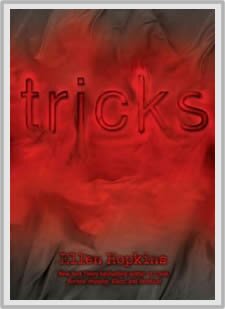
Tomorrow is the first day of Banned Books Week, an annual event started in 1982 where hundreds of libraries and bookstores around the country draw attention to the problem of censorship by mounting displays of challenged books and hosting a variety of events.
Books might be banned by libraries, schools, and bookstores for any number of reasons – sexual or violent content, the use of profanity or slang…even positive portrayals of homosexuals. Over the years, books ranging from The Gossip Girls series, and TTFN to The Adventures of Huckleberry Finn and Judy Blume’s Forever have been targeted.
One of my favorite authors, Ellen Hopkins, has faced censorship issues with nearly all of her hard-hitting books. Her latest book, , about teen prostitution, is no different.
The Kids Right to Read Project recently interviewed Ellen about the issue of book banning and censorship. Here’s some of what she had to say:
My books speak to real life. My latest book Tricks is about teen prostitution. To write it requires having sex in the book, and not pretty sex. It has to include sex. In Identical which is about sexual abuse by a parent and I take my readers right into the bedroom. Why not shut the door? Well, a lot of books do that and we need to really look at what is going on. What do perpetrators really look like? We expect them to be a certain way – and we need to explore our ideas of who sexual predators are to access the way to protect ourselves and our children. As adults we want to believe things like this, or drug use, are not happening anymore, or happening less and less, but that’s not the case and we need to acknowledge that in order to help the victims. We can’t make life prettier for youth, but we can arm them. In high schools today there are youth who cut, there are those who commit or think about suicide. We have to give our kids the tools.
I don’t back-pedal and I don’t sugar-coat things for my readers. Crank and Glass were both based on true stories- fictionalized of course to give space to my daughter and those that the stories are based upon. I don’t feel as an author I need to tip toe around addiction, sex or anything else. In my books my characters experience things as they are. Kristina for instance feels meth is like riding a roller coaster the first few times she does it. The point is obviously kids should just say no, but they should do so because they understand the consequences of saying yes on their lives. My books allow youth an honest look at important issues affecting them.
I couldn’t agree more. It’s no fluke that Ellen’s books have connected with teens in such a huge way – her writing is raw and and real and she has a willingness to talk about things that frankly aren’t so pretty. If anything, Ellen’s books are realistic portrayals of what could happen and can serve to deter someone from going down a dangerous path. They also have the potential to be important conversation starters. I mean, shouldn’t we be talking and getting real about difficult issues like sex and drug abuse and incest instead of sweeping them under the rug? Censorship is never the answer…discussions, frank conversations, and openness is the only way to go
Do you want to take a stand against book banning? Here are some ideas from the Kids Right to Read Project for getting involved and making a difference:
- Send a letter to local newspapers and magazines, or write an “op-ed” article.
- Write to any and all public officials involved in the situation, including the mayor, city council, and other city officials, superintendent of schools and school board members, members of the library board, and state education officials. Find your local representative on this website.
- Attend school board, library board, and PTA meetings and raise the issue. Bring your friends to voice their support.
- Start a petition or letter-writing campaign. Organize a local anti-censorship group, and publicize your activities on the Internet.
- Spread the word online: start a Facebook group, a blog, a Twitter account to connect your friends to the issues you care about and to find other people who share your concerns.
- Work with community groups, especially professional and civic organizations, and religious groups, to call attention to the problem.
- If the censorship incident is in a school, get affected parents and students involved. If a teacher is targeted for criticism because s/he used “controversial” materials, it is particularly important to support the teacher—if you ever expect any other teachers to stick their necks out in the future. Circulate a petition in support of the teacher or the materials. Solicit help and support from other teachers and educators.
* * * * *
Book Giveaway Contest
Where do you stand on the issue of book banning in schools? Leave a comment explaining the reasoning behind your position on the issue and you’ll be entered to win a copy of Ellen Hopkin’s brand new book, . A winner will be chosen at random on October 7, 2009. And to read Ellen’s recounting of the current censorship battle she’s fighting over a canceled school visit in Oklahoma and a local news anchor’s public call out for her books to be banned, read her blog here.
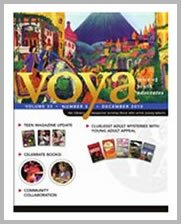

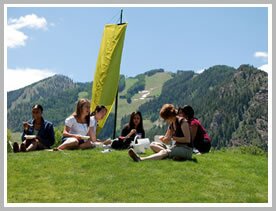 Are you a high school junior or senior looking for summer growth opportunities? You might want to look into these programs I just learned about courtesy of the
Are you a high school junior or senior looking for summer growth opportunities? You might want to look into these programs I just learned about courtesy of the 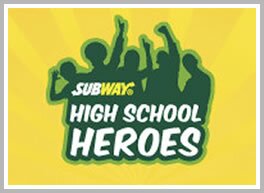 Do you have a hero in your life? Maybe it’s someone in your family, or a teacher, or a tutor. Maybe it’s a friend or a mentor. If so, Subway (yes, the sandwich company) wants to hear from you. Subway has just partnered with the production company Electus to launch – an 8-week program encouraging high school students to nominate inspirational heroes from their lives.
Do you have a hero in your life? Maybe it’s someone in your family, or a teacher, or a tutor. Maybe it’s a friend or a mentor. If so, Subway (yes, the sandwich company) wants to hear from you. Subway has just partnered with the production company Electus to launch – an 8-week program encouraging high school students to nominate inspirational heroes from their lives.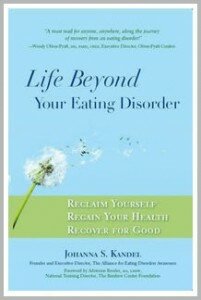 If you or someone you know struggles with an eating disorder, please check out my friend and fellow member of the Confidence Community (TM) Johanna Kandel’s new book, which just came out today.
If you or someone you know struggles with an eating disorder, please check out my friend and fellow member of the Confidence Community (TM) Johanna Kandel’s new book, which just came out today.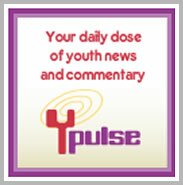 I just found out about another great opportunity for those of you who want to get more involved in journalism and are looking for a platform to share your perspective on pop culture, the media, and more.
I just found out about another great opportunity for those of you who want to get more involved in journalism and are looking for a platform to share your perspective on pop culture, the media, and more. 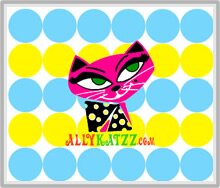 As a big fan of
As a big fan of 

